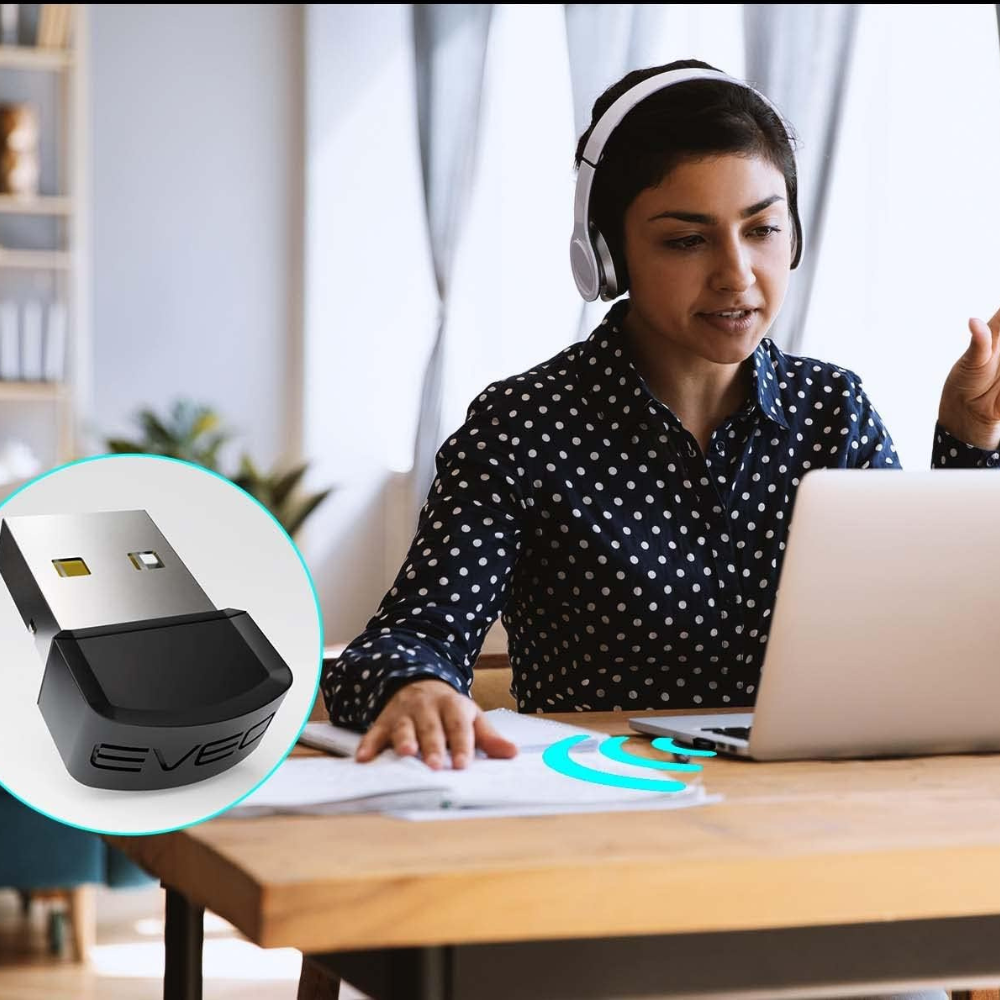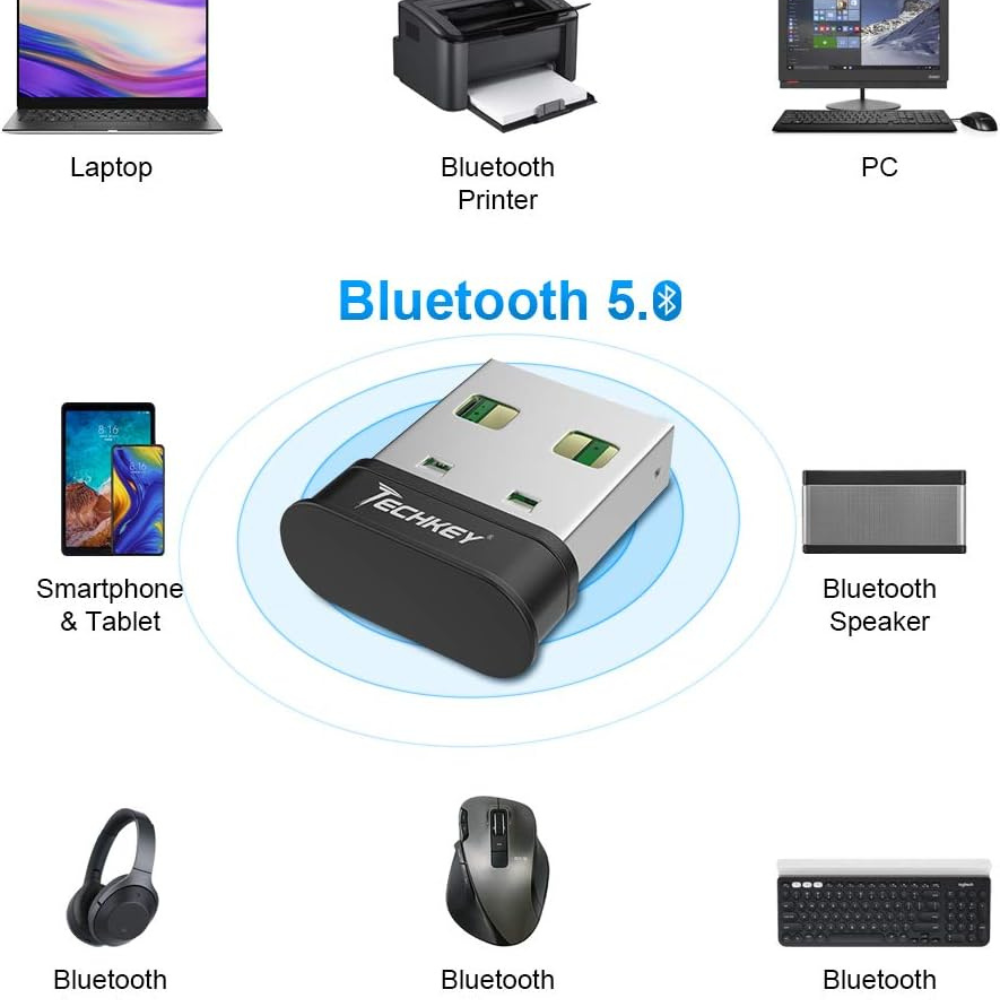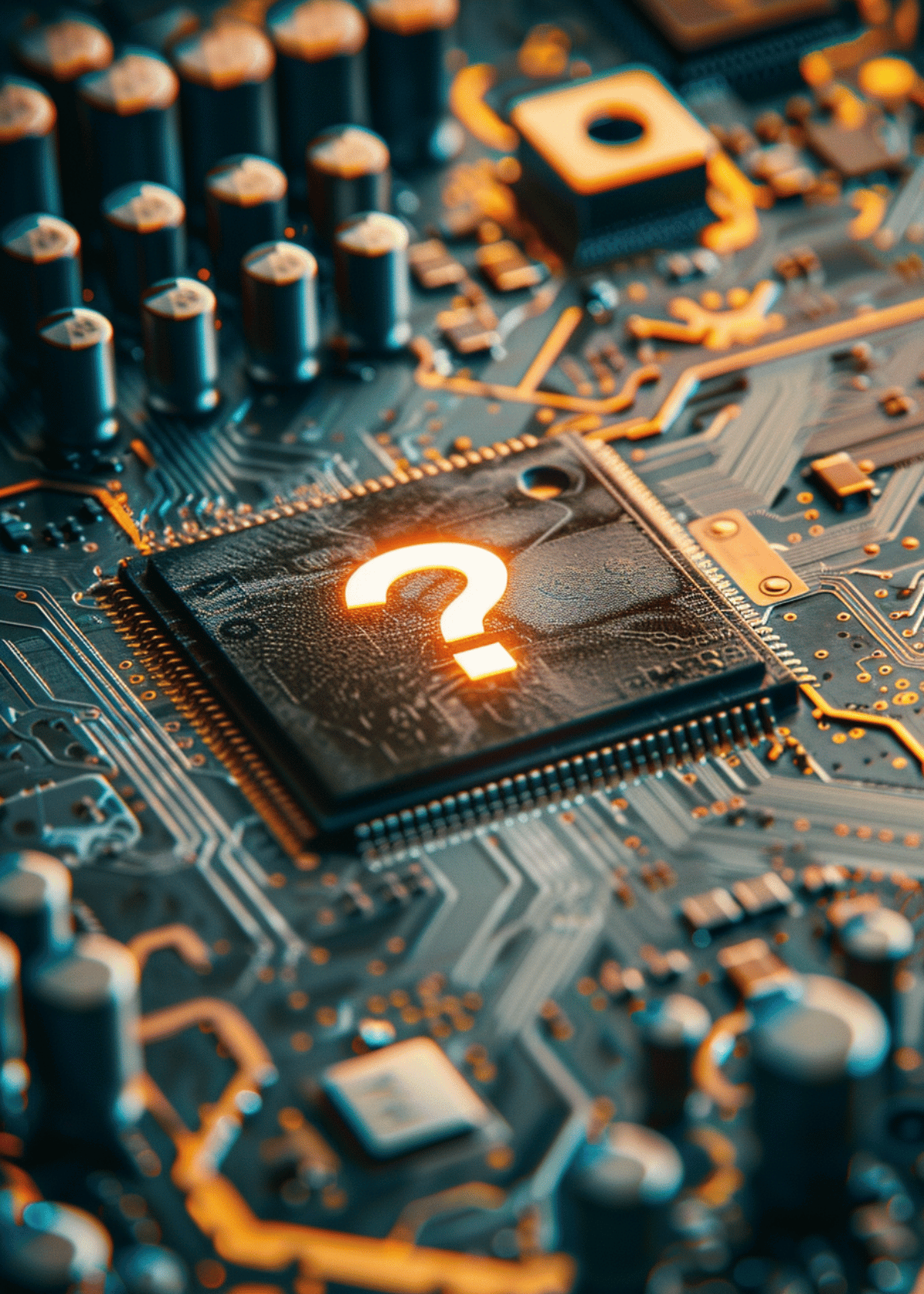The Greatest Bluetooth Tech Yet - What is a Bluetooth Adapter? 😲

In today's digital age, wireless connectivity has become an indispensable part of our daily lives. Whether it's transferring files between devices, streaming music to speakers, or connecting peripherals such as keyboards and mice to computers, the ease and convenience of wireless technology is unparalleled.
One significant aspect of wireless connectivity is Bluetooth, a standardized technology that allows devices to communicate with each other wirelessly. Bluetooth has revolutionized the way we connect and synchronize devices, making our lives more manageable and organized.
Definition and Explanation of a Bluetooth Adapter

USB Bluetooth Adapter for PC
USB Bluetooth Adapter for PC 5.1 - Bluetooth Dongle 5.1 USB Bluetooth Dongle for PC - Windows 11/10 Plug and Play
A Bluetooth adapter, also known as a Bluetooth dongle, is a small device that enables non-Bluetooth devices to connect and communicate wirelessly with other Bluetooth-enabled devices. It essentially bridges the gap between devices that do not have built-in Bluetooth capabilities and the vast array of Bluetooth devices available in the market.
The adapter acts as a mediator and transmits audio, data, and control signals between devices, converting them into Bluetooth signals that can be understood and interpreted by other devices. It opens up a world of possibilities for seamless wireless connectivity, allowing users to access a multitude of Bluetooth-enabled devices without having to invest in entirely new devices.
How Bluetooth Adapters Work and Their Compatibility With Different Devices?
Bluetooth adapters work by utilizing Bluetooth technology to establish a wireless connection between devices. The adapter plugs into the USB port of a device, such as a computer or a TV, providing it with Bluetooth functionality. The device can then communicate wirelessly with other Bluetooth-enabled devices within its range.

Most Bluetooth adapters are pre-paired, meaning they are already configured to work with a specific set of devices out-of-the-box. However, they can also be customized and paired with other devices as per the user's requirements. Bluetooth adapters are compatible with a wide range of devices, including computers, televisions, headphones, speakers, gaming consoles, and even cars, making them a versatile solution for all wireless connectivity needs.
Benefits of Using a Bluetooth Adapter for Wireless Connectivity
The use of Bluetooth adapters offers numerous benefits for users seeking wireless connectivity. Firstly, they provide a cost-effective solution for individuals who may not have the budget to replace their existing devices with new Bluetooth-enabled models.
By simply plugging in a Bluetooth adapter, these individuals can gain all the advantages of wireless connectivity without breaking the bank.
Secondly, Bluetooth adapters provide flexibility and convenience by eliminating the need for wires and cables. This not only reduces clutter but also allows for easy mobility and flexibility in device placement.
Lastly, Bluetooth adapters offer compatibility with a vast range of devices, making them a versatile option for users who possess different devices with varying degrees of Bluetooth capability.
Popular Use Cases for Bluetooth Adapters
☛ Audio Streaming:
One of the most common use cases for Bluetooth adapters is audio streaming. Whether you want to connect your smartphone to your car stereo system or your computer to a pair of wireless headphones, the right Bluetooth adapter can enhance your audio experience. Look for adapters that support the latest Bluetooth version to ensure seamless connection and high-quality sound transmission.
☛ Gaming:
Bluetooth adapters are also widely used by gamers who want to connect their wireless controllers to their gaming consoles or PCs. When choosing a Bluetooth adapter for gaming purposes, it's important to look for one that offers low latency and a stable connection. This will ensure that your gaming experience is smooth and uninterrupted, avoiding any lag or input delay.
☛ Data Transfer:
Bluetooth adapters are not limited to audio and gaming purposes only. They can also be used to transfer data wirelessly between devices. If you frequently transfer files between your smartphone and computer, for example, a Bluetooth adapter can be a convenient solution. When selecting a Bluetooth adapter for data transfer, consider its range and transfer speed to ensure optimal performance.
☛ Home Automation:
Bluetooth adapters are increasingly being used in home automation systems. These adapters allow you to control and monitor various smart devices, such as lights, thermostats, or security cameras, directly from your smartphone or tablet. When choosing a Bluetooth adapter for home automation, make sure it is compatible with the specific devices you want to control and offers a user-friendly app for easy management.
☛ Multiple Device Connection:
Lastly, if you need to connect multiple Bluetooth devices simultaneously, look for adapters that support multi-point connectivity. This feature allows you to connect several devices, such as a smartphone, laptop, and wireless keyboard, all at once. This can be particularly useful for professionals who need to quickly switch between different devices without the hassle of constantly pairing and unpairing.
➾Tips for Choosing the Right Bluetooth Adapter for Your Needs
When it comes to choosing a Bluetooth adapter, there are a few factors to consider.
1. Compatibility with Your Device:
The first and most crucial factor to consider is the compatibility of the Bluetooth adapter with your device. Not all devices support every Bluetooth version, so it's essential to check if your device is compatible with the adapter you are considering. Ensure that the Bluetooth version on your adapter matches or is backward compatible with the one on your device to achieve optimal performance.
2. Bluetooth Range:
The range is another critical factor to consider when selecting a Bluetooth adapter. If you plan on using your device relatively close to the peripherals, a short-range adapter with a range of 30 feet will be sufficient. However, if you require a more extensive range, such as for audio streaming across a room or in a large office setup, opt for a long-range adapter with a range of 100 feet or more.
3. Data Transfer Speed:
If you need to transfer large files or stream high-quality audio or video, the data transfer speed of your Bluetooth adapter becomes crucial. Look for an adapter that supports Bluetooth 4.0 or higher for faster and more reliable data transfer. Bluetooth 5.0 is the latest version available, offering improved speed and better connectivity. However, keep in mind that both your adapter and the device you are connecting to should support the same Bluetooth version to take advantage of its benefits.
4. Power Consumption:
When choosing a Bluetooth adapter, it is essential to consider its power consumption, especially if you are using it with a portable device, such as a laptop or smartphone. Opt for an adapter that has low energy consumption to ensure that it does not significantly drain the battery of your device. Bluetooth adapters with version 4.0 and higher typically have lower power consumption, making them ideal for portable devices.
5. Additional Features:
Some Bluetooth adapters offer additional features that can enhance your user experience. For instance, some adapters support dual mode, allowing you to switch between Bluetooth and Wi-Fi connections. Others come with backward compatibility with older Bluetooth versions or include audio codecs for improved audio quality. Consider your specific needs and preferences to determine which additional features would be beneficial for you.
Troubleshooting Common Issues with Bluetooth Adapters
Bluetooth connectivity issues can be frustrating, but fortunately, there are common solutions to most problems.
✔️ Connection Failures:
One of the most common issues faced by Bluetooth adapter users is connection failures. If you're unable to establish a connection between your adapter and the target device, the first step is to ensure that both devices are compatible with each other. Check the specifications and compatibility requirements of both your adapter and the device you are trying to connect to. In addition, make sure that the Bluetooth function on both devices is turned on and that they are within close proximity to each other. If the issue persists, try resetting the Bluetooth settings on both devices and attempt to reconnect.
✔️ Poor Audio Quality:
Another frequent problem experienced with Bluetooth adapters is poor audio quality during calls or while streaming music. This can be caused by various factors such as interference, low battery levels, or outdated drivers. To troubleshoot this issue, try moving your devices closer together to reduce interference from other wireless signals. Additionally, ensure that your adapter is fully charged and that the device you are using has sufficient battery power. If the problem persists, check for updates for your adapter's drivers and install them to ensure optimal performance.
✔️ Device Recognition Issues:
Sometimes, Bluetooth adapters may fail to recognize the device you are trying to connect to. This can be frustrating and prevent you from enjoying the benefits of wireless connectivity. In such cases, ensure that both devices are in pairing mode, as this is necessary for them to identify each other. If this doesn't work, try rebooting both devices and attempting the pairing process again. It's also worth checking if your adapter is compatible with the device you are trying to connect to, as older or cheaper adapters may have limitations.
✔️ Limited Range:
Bluetooth adapters typically have a limited range within which they can establish a stable connection. If you find that your adapter's range is significantly less than expected, there are a few troubleshooting steps you can take. Firstly, ensure that there are no physical obstacles, such as walls or metal objects, blocking the Bluetooth signal between the devices. Secondly, try adjusting the position and orientation of the adapter to optimize signal strength. If none of these steps improve the range, consider upgrading to a more powerful and long-range Bluetooth adapter model.
✔️Frequent Disconnects:
Occasionally, Bluetooth adapters may experience frequent disconnects during use, interrupting your audio or data transfer. This can happen due to interference or software compatibility issues. To resolve this problem, try disconnecting and reconnecting the adapter to your device. Ensure that you are within range and that there are no other signals that can interfere with the Bluetooth connection. It's also advisable to update the firmware or drivers of your adapter to the latest version, as this can often resolve compatibility issues and improve stability.
➩ Future Prospects of Bluetooth Technology and Potential Advancements

Bluetooth technology continues to evolve, and its future prospects are promising. The latest Bluetooth versions, such as Bluetooth 5 and Bluetooth Low Energy (LE), offer significant advancements in terms of range, speed, and connection stability.
This opens up opportunities for various industries, from healthcare to the Internet of Things (IoT), to leverage the capabilities of Bluetooth in innovative ways. Moreover, the ongoing development of mesh networking and Bluetooth audio standards suggests even more exciting advancements are on the horizon.
With the increasing integration of Bluetooth technology in our daily lives, the possibilities for wireless connectivity are virtually limitless.
Final Thoughts:
Bluetooth adapters have revolutionized wireless connectivity, offering a seamless experience in connecting headphones, speakers, keyboards, and more. Choosing the right adapter requires considering compatibility, Bluetooth version, power consumption, and design. Troubleshooting common issues involves simple steps such as rebooting devices, managing interference, and updating firmware. The future of Bluetooth technology looks promising, with advancements in range, speed, and connectivity, opening new opportunities across various industries. As we embrace the wireless revolution, Bluetooth adapters remain essential tools for simplifying our lives and enhancing connectivity.





